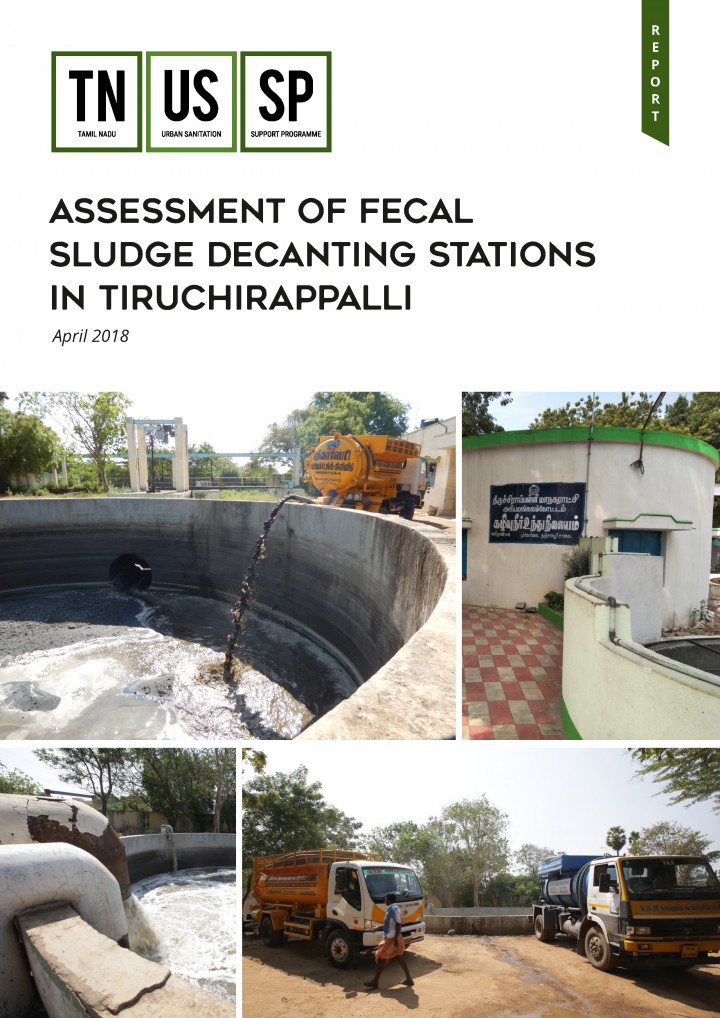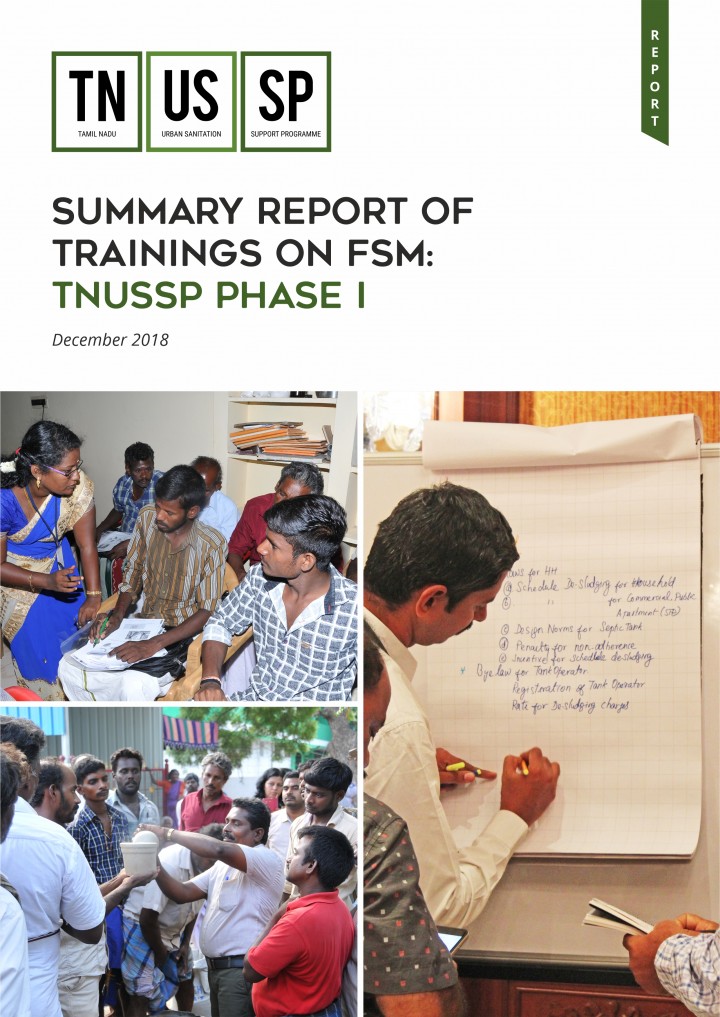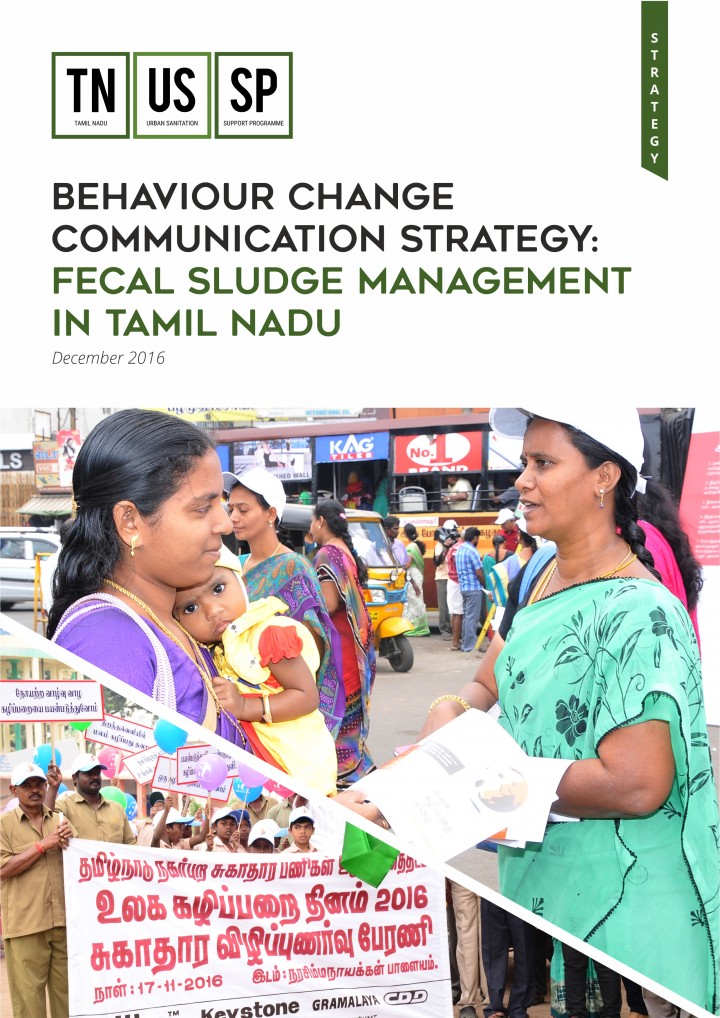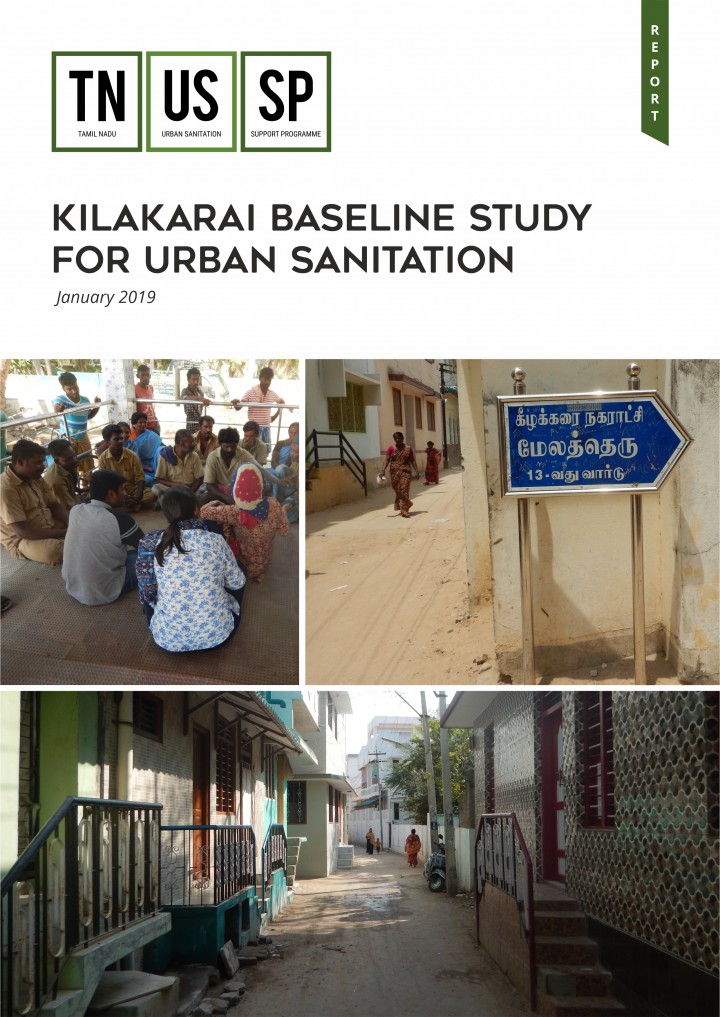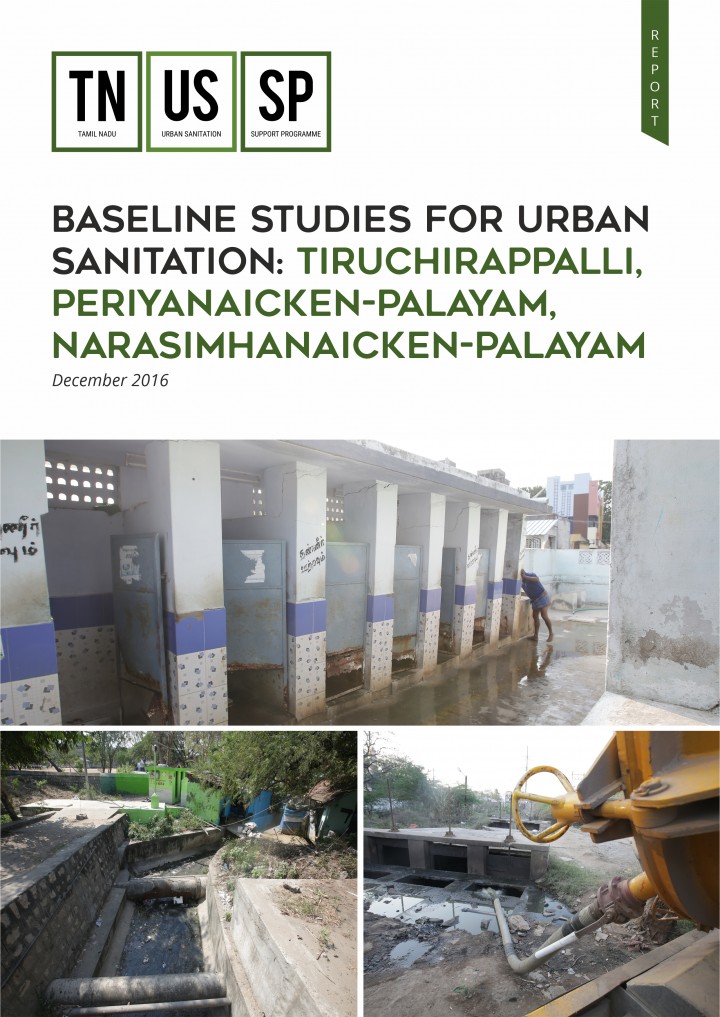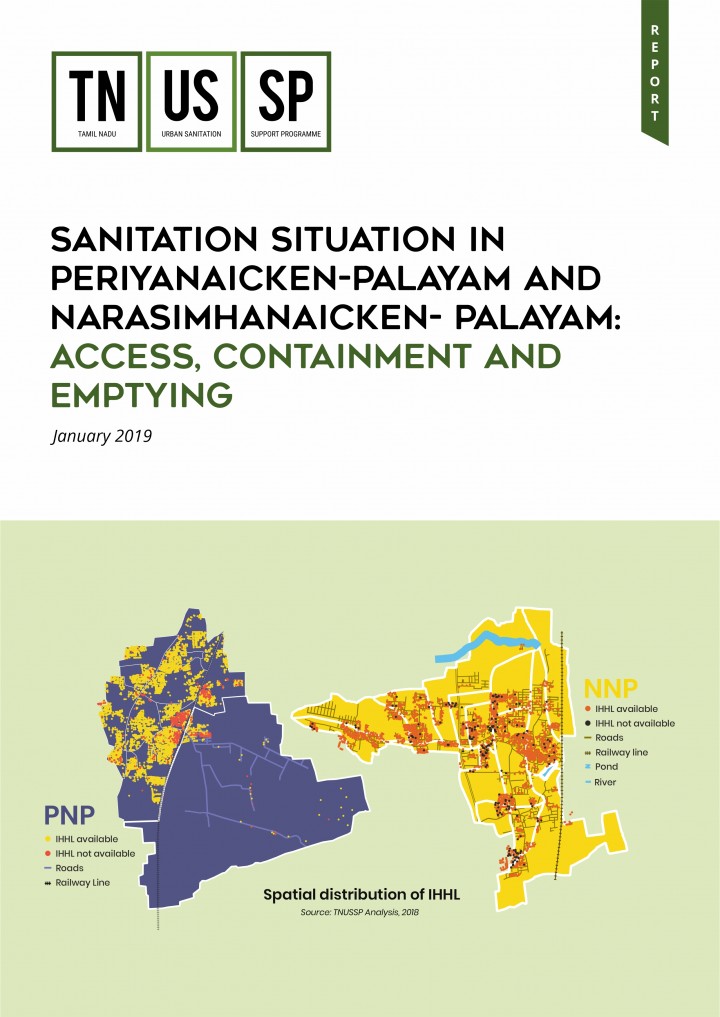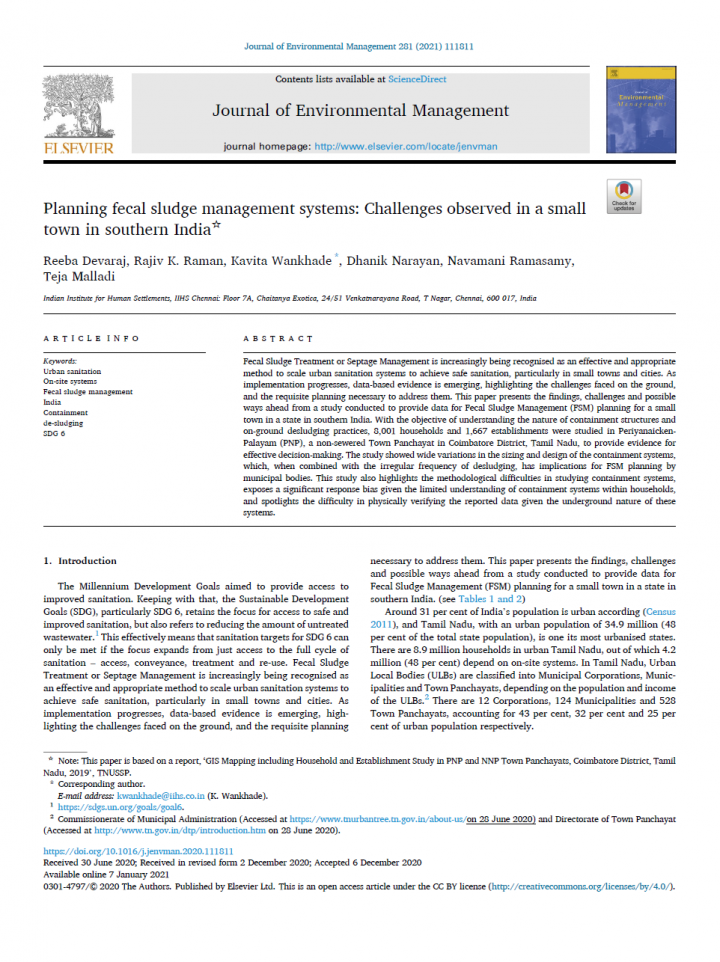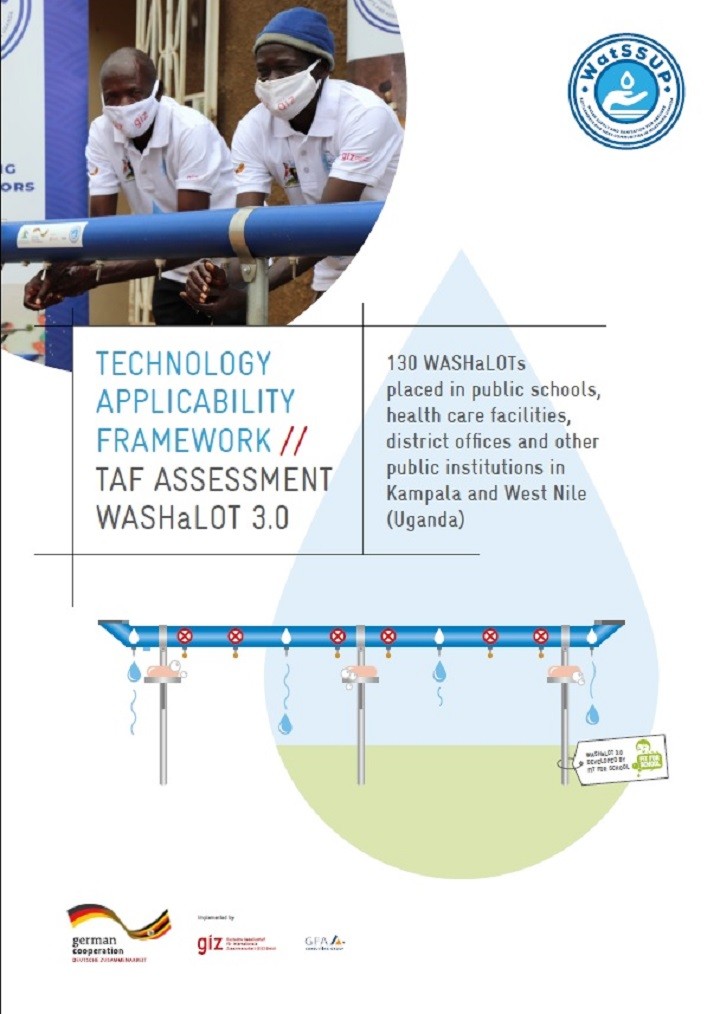Searching for information on Sanitation Workers?
The Sanitation Workers Knowledge + Learning Hub is the best source for all current news, trends, articles and updates on sanitation workers rights around the world.
Sanitation, including the proper management of wastewater, is central to ensuring human and ecosystem health, and economic and environmental benefits. While significant efforts are being made across Africa to ensure better access and services, many places still have inadequate infrastructure for sanitation and wastewater management. This is happening at a time of greater need due to population …
UNICEF and engineers from the Water and Sanitation Support Organisation from West Bengal have prepared these standard operating procedures for chlorination of groundwater-based piped water systems. It is based on field visits to to gain a thorough understanding of the piped water supply schemes and various factors that influence the concentration of free residual chlorine in distribution …
UNICEF Chhattisgarh devised an approach to maintain the WASH infrastructure in schools considering the importance of continued WASH facilities and services in general and more specific to reopening of schools with this continuing COVID-19 pandemic. Functional WASH services for a clean and safe environment and maintaining respiratory and hand hygiene are the first line of defense against the …
The Sewage Treatment Plant at Tiruchirappalli has been used for co-treating fecal sludge by utilizing pumping stations as receiving/decanting stations. An assessment was carried out at the decanting stations in Tiruchirappalli with an objective to check the adequacy of existing facilities, identify areas of improvement and develop a methodology for feasibility assessment for converting pumping …
Capacity building initiatives are one of the key approaches followed by TNUSSP to effect changes across the entire sanitation chain. As part of this, orientation and training programmes were held for a range of stakeholders such as officers at the state level and of Urban Local Bodies, engineers, masons and desludging operators. This report presents details of the training/orientation programmes …
In Tamil Nadu, currently, a range of behaviour deficits exist along the full cycle of sanitation at the stages of access, containment, emptying, transport, treatment and re-use/disposal. However, communication strategies in the sanitation sector have been largely limited to promoting hygiene behaviours such as handwashing or stopping open defecation by promoting the use of toilets. While these …
TNUSSP carried out a baseline study in Kilakarai municipality to understand the current situation of access to sanitation and arrangements made for fecal sludge management in households and establishments. The findings from the study provide an overview of the gaps and challenges across the sanitation chain in Kilakarai in effective implementation and monitoring of septage management.
TNUSSP carried out a baseline study in Tiruchirappalli city and the two town panchayats of Periyanaicken- Palayam and Narasimhanaicken-Palayam in Coimbatore district. The study aimed to profile households, establishments and schools in these locations in terms of their arrangement for toilets, existing containment types, collection, conveyance, and disposal mechanism along with water supply …
TNUSSP carried out a geographic information system (GIS) based sanitation mapping of households and establishments in the two town panchayats of PNP and NNP with an aim to primarily understand the nature of containment and on-ground desludging practices to enable more effective planning. It also included the preparation of GIS-linked database of properties (with households and establishments) …
Fecal Sludge Treatment or Septage Management is increasingly being recognised as an effective and appropriate method to scale urban sanitation systems to achieve safe sanitation, particularly in small towns and cities. As implementation progresses, data-based evidence is emerging, highlighting the challenges faced on the ground, and the requisite planning necessary to address them. This paper …
130 WASHaLOTs placed in public schools, health care facilities, district offices and other public institutions in Kampala and West Nile (Uganda).
In a participatory process, a technology implemented as a pilot is assessed through the perspective of three key stakeholder groups engaged with the implementation of the technology: user/buyer, producer/provider and regulator/ investor/facilitator. …
Diarrhoeal diseases are very common causes of death in low and middle-income countries. The aim for this systematic review was to show which promotional approaches might change handwashing and sanitation behaviour, and which implementation factors affect the success or failure of such promotional approaches.
The paradigm for identifying the beneficiaries and understanding their needs and requirements for delivery of WASH services has evolved over time. Initially, governments started with the overarching objective of providing universal access to WASH services. During the MDG period, there was increased thrust to understand the specific needs and requirements of different population segments, in order …
This study took place between October 2017 and March 2018 and was led by CSOs in 25 countries under the umbrella of End Water Poverty, Watershed Consortium, Coalition Eau and the Water Supply and Sanitation Collaborative Council (WSSCC). Organisations agreed to conduct an in-depth inclusive analysis on country-level accountability mechanisms towards SDG6 on clean water and sanitation …
The publication voices the importance of social context and collective action as a mediating factor between programme implementation and its success. CRSHIP assesses the social factors that influenced sanitation uptake, indicating the efficiency of communities participating together with local community leaders or NGOs to work cohesively in achieving their S&H goals.
A practical guide for the Global Sanitation Fund (GSF) supported programme teams and Community Led Total Sanitation (CLTS) facilitators on how to collect information related to Equality and Non-Discrimination (EQND) at community level, and in particular to learn from people who may be disadvantaged. This guide provides insights into the key ethics principles for information gathering and …
The Equality and Non-discrimination (EQND) and Community-led Total Sanitation (CLTS) Handbook provides practical guidance for ensuring that behaviour change interventions leave no one behind. Drawing on experience from across the sector, this handbook is specifically targeted towards those implementing or supervising CLTS interventions at the community level. Key features include a summary of …
‘Do-no-harm’ means taking every precaution to ensure people will not be adversely impacted by the programme, including inadvertently. Whilst it is understood that ‘community problem, community solution’ should remain core to community-led approaches, facilitators also have an ethical obligation to step in if initiatives pose a risk to the rights, dignity or well-being of people who may be …
WSSCC's Global Sanitation Fund (GSF) Programme in Nepal was financed by WSSCC and implemented by UN Habitat Nepal. This evaluation brief seeks to provide a summative and a formative forward-looking analysis of the Programme. The analysis is framed around the Organisation for Economic Co-operation and Development's Development Assistance Committee (OECD DAC) evaluation criteria of relevance, …
In September 2019, the Government of Nepal declared the country ‘open defecation free’ (ODF). Leading up to this milestone, the Government of Nepal and other sector partners focused on the challenging Terai plains - the ‘last mile’ of Nepal’s Sanitation Campaign. This Case Study documents the key success factors from WSSCC's Global Sanitation Fund programme in Nepal, executed by …
Voices of youth, women, older persons, persons with disabilities, persons living with HIV, transgenders and LGBTIQ, sex workers, manual scavengers, Dalits, Adivasis, farmers, urban shanty dwellers, urban homeless, migrants and refugees. Leave No One behind is the core principle of the SDGs and the 2030 Agenda. A consultation was held in India in late 2019 involving 14 groups identified by Niti …
Sustainable Development Goal 6 for water and sanitation calls for the realization of safely managed services (SMSS) for everyone by 2030. While there has been significant research and implementation to improve the sanitation service chain in urban settings, little guidance is available on how to achieve and sustain SMSS in rural contexts. In 2019, WSSCC commissioned this study to examine to what …
This report explores the current situation of MHH in selected focus countries, reflecting on the recent progress made and the remaining challenges. The three in-depth country studies looked at progress at three levels: a) nationally; b) progress catalysed with the support of WSSCC funding (outside of the Global Sanitation Fund, GSF); and c) progress achieved through the GSF-supported programmes. …





